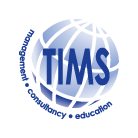In December 2013 TIMS Holding B.V. acquired SIMS International Ltd. , a company which was created in 1997 by Pat FitzPatrick , former director executive education of IBM and Sybren Tijmstra , chairman/managing director TIMS Holding B.V.
SIMS International Ltd. developed and delivered very successful leading edge interactive business simulations in the field of strategy formulation and implementation. These offerings are now fully integrated in the TIMS Holding B.V. services.
Our Simulations and programmes
The simulations can be integrated in management development programmes.
By emphasizing those aspects of strategy, marketing, operations and finance that are most relevant to your organisation’s business, these simulations can be tailored to your needs.
Strategic Performance – 2 days (UK/NL/D versions)
This simulation is aimed at both high potentials as well as senior managers of manufacturing companies and provides insight in the difference between strategic and tactical thinking and the skills required for both.
Participants are challenged to show flair and vision in their strategic thinking and actions while simultaneously effectively implementing the strategy of the company in practice. During this process they will realize the importance of operational discipline.
Strategic Service Performance – 2 days or 1 day + debriefing (UK/NL/D versions)
This simulation is also aimed at both high potentials as well as senior managers but with a focus on the service sector. The simulation, in which participants are also challenged to show flair and vision in their strategic thinking and actions, emphasizes the elements of skills development and creating added value, which are crucial for strategy implementation in the service sector. Instead of inventory management the simulation focuses on optimal use of staff to create the lowest cost structure and includes a programme aimed at strengthening customer loyalty.
Managerial Performance – 1 ½ days (UK/NL/D versions)
Predominantly developed for first line managers, this simulation is specifically aimed at excellence in implementation. Therefore the focus is on gathering and evaluating relevant market and competitive information to improve implementation effectiveness. The simulation helps in creating a better understanding for and use of financial reporting data, optimizing the use of working capital and emphasizing customer orientation.
Change Management Communication (UK/NL/D versions) – ½ day
This simulation can be used at all managerial levels and its focus is on the communication aspects in a change process. The simulation confronts the participants with very different reactions on change by managers and organisations. A range of communication instruments are offered from which the participant selects the appropriate tools. Participants get feedback from the organisation about the effect of their communication interventions.
Services which can be added to the generic simulations
At the request of the client the pay-off of the simulation experience can be enhanced by adding some services to the running of the simulation. Some examples are:
Behavioural skills observation and feedback
During the simulation the work in teams also reveals behavioural skills (leadership, communication, teamwork,time management etc.). We can add to our delivery team some consultants which are trained to observe behavior and give feedback on behaviour to increase the pay-off of the simulation experience.
Short translation into own business
The simulations are generic but at the end of the simulation we can present a 10 steps approach to help participants in translating the simulation experience into their own business practice.
Specific issues related programmes
We design programmes, with a simulation as core element, addressing specific topics and/or problems (cooperation, change, integration of business functions or cultures) which can be obstacles to business success. Some examples are:
Aligning business functions to enhance corporate success
Programme for functional specialists who usually focus on excellence in their professional field. This program promotes mutual insight and understanding across functions to jointly achieve corporate success. Examples are:
- The Human Resource manager as business partner
- The Controller as business partner
- The Manufacturing manager as business partner
Results enhancement for entrepreneurs
Programme developed for entrepreneurs providing insight in the elements determining the success of a business and their interrelationship. It shows the consequences of managerial choices and how they impact the competitive environment.
Investment acquisition performance accelerator
Programme specially developed for investment acquisitions. The acquiring party wants to improve as soon as possible the strategic and operational performance of the acquired company. This programme enhances the skills of the senior managers of the acquired company and orients their attitudes and commitments towards the necessary changes. It allows the purchaser to achieve its financial objectives by managing the change process at arms’ length, as the senior management of the acquired company is committed to acting on the purchaser’s behalf.
The accelerated strategic merger & acquisition implementation process
Programme to accelerate the merger/acquisition integration. Although one of this program’s pay-offs is an enhanced awareness among key senior managers of both organisations of the strategic rational of the merger/acquisition, its main goals are to
- improve the integration skills needed for a successful post-merger or acquisition process, and
- to shift attitudes of senior managers from a passive acceptance towards enthusiastic support
Change leadership
Programme for managers who are responsible for a change process. Showing that leadership and implementing change are pillars of business success. This programme supports the successful and rapid implementation of a change project specific to your organization. It offers a direct pay-off, as its deliverables are:
- the essential ingredients for your change project
- a draft action plan (what-who-when)
Programmes focused on individual managers
We design programmes, with a simulation as core element, which develop insight in and improve know-how, skills and attitudes to allow the individual manager to provide a greater contribution to corporate success. Some examples are:
SPIP- strategic performance improvement programme
Program aimed at high potentials as well as middle management. It combines a business simulation with leadership and/or team training.
Prior to the start of the programme an assessment of the participants’ knowledge, skills and attitudes is conducted. During the programme participants will be observed on personal qualities like leadership, initiative, courage and perseverance. Simultaneously the task-oriented competencies and effective communication of the manager are observed.
A Personal Development Plan for each participant will be provided at the end of the programme.
This 3-days programme can be delivered as a stand-alone programme or included as a module in an existing management development programme.
Women’s Business Acumen Workshop
Programme aimed at female managers wanting to re-enter the labour force. It combines action learning in the form of a business simulation, personality tests and behavioural observation. The pay-offs for the participants are:
- Increased strategic knowledge and skills
- Improved understanding of and competences in implementation of strategy
- Understanding of business performance measurement
- Insight into own thinking preferences and competences
- Suggestions for further personal development
Testimonials
Barclays
"I found putting strategy, decision making and teamwork to the full test in a creative, interactive manner over 48 hours most valuable."
Arthur D. Little
"The simulation was fabulous! It was really a fantastic learning experience. I've done simulations before, but this was far the best due to excellent 'comments' made by the SIMS team after each period."
ING
"It emphasized the need to constantly keep long term strategic goals in mind. At the same time it showed the impact of competition on own strategy."
Cap Gemini Ernst & Young
"Very interesting & meaningful days. Thanks guys hope to meet again sometime."
IBM
"My first time business simulation. Just fascinating! Due to lack in background / practical knowledge on essential issues (finance etc.) certain learning aspects most probably missed. Perhaps next time..."
Rolls-Royce
"A very good learning process with regards to strategic thinking, strategic planning, market understanding, team play, team processes, team decisions."
Corus
"Very good part of the programme. High learning effect due to good design of the two days."
EEP-MBA
"Well designed simulation, good timing. Contributes a lot to the total MBA programme."
Alcatel
"Excellent learning tool. Shows that no matter how you interpret the data of markets there are dynamics which are unknown."
Projects to stimulate entrepreneurship at Secondary schools
Background
It is of crucial importance for our economy to stimulate entrepreneurship.
In the near future, taking the demographics in most European countries into consideration, we can expect a scarcity of young entrepreneurial talent.
Interest in and talent for entrepreneurship has to be identified and stimulated as soon as possible amongst youngsters.
Secondary education has to play a role in this process of early identification and development of entrepreneurial talent.
Projects in the United Kingdom and The Netherlands
In line with this reasoning and with the help of sponsors in the United Kingdom and The Netherlands, respectively Rolls-Royce Plc. and the pension fund ABP(later APG), the largest European pension fund SIMS International Ltd. conducted a variety of projects at secondary schools.
In the context of these projects business simulations have been delivered to secondary school students. These action-learning simulations are in line with the action-oriented attitude of potential entrepreneurs:
• they provide them with basic business skills and
• they stimulate their enthusiasm for entrepreneurship.
Some of the topics covered during these business simulations were:
• How do I create sales revenue (responding to customer requirements to create demand)?
• How do I forecast the profit potential of a market?
• How do I determine the objectives and strategy of my company?
• How do I manage operational uncertainties (market growth, investments, benchmarking, profit & cash-flow forecasting)?
• How do I evaluate my competitive position?
• How are company results measured?
Project in the United Kingdom – Profitable Pursuit
Rolls-Royce, with the approval of the Qualifications Curriculum Authority, decided to sponsor a project, called Profitable Pursuit for the 2003- 2007 period, to stimulate entrepreneurship at schools.
Then SIMS International Ltd. conducted pilots at schools and finally conducted some 20 train-the-trainers sessions in which 140 Economics teachers were trained in the use of the simulation and its teaching tools. The Profitable Pursuit package got wide attention in the UK and a TV programme on new educational tools identified it as one of the best tools for teaching Economics in Secondary education curricula.
Both teachers and students showed a great interest in Profitable Pursuit. Their reactions were very enthusiastic and the teachers were also very satisfied with this innovative teaching tool, as was demonstrated by their frequent re-use of the Profitable Result package. And as post-simulation polls showed, students’ interest in entrepreneurship was clearly stimulated.
Dutch School Project
Based on the success of Profitable Pursuit in the UK a similar initiative was taken by the ABP pension fund in The Netherlands.
In 2007, when the business simulations including the teaching materials were ready, ABP (later APG) decided to sponsor the annual delivery of some 25 two-day business simulations at secondary schools for a four-year period (2007-2011). Trainers from SIMS International Ltd. assure the deliveries. More than 30 secondary schools across the country benefitted from this offer and over 1400 students have participated with great success in the simulations.
Students’ enthusiasm for entrepreneurship clearly increased and it strengthened their motivation for the chosen focus in their education.
School projects in other countries?
The UK and Dutch examples show that companies are willing to sponsor such initiatives mostly for all or some of the following motives:
• Corporate social responsibility
• Emphasizing the important role entrepreneurship plays within a country’s economy
• Commitment to the link between education and business
• Express their entrepreneurial spirit
• Show their commitment to the teenage generation
• Optimise their image on the (labour)market (fight for talent)
The objective of TIMS Holding B.V. is to get similar entrepreneurship projects sponsored in the future.



